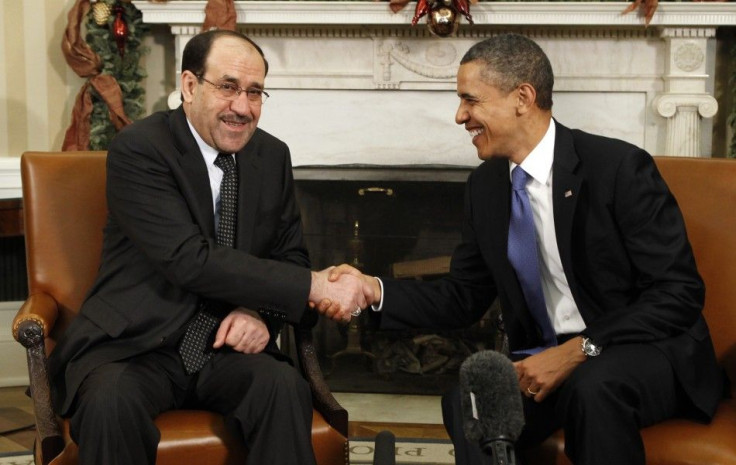US Military Personnel In Iraq: Numbers And Mission Are Murky

U.S. military personnel and security guards are heading to Iraq to assist Baghdad in determining how best to fight one of the most feared extremist groups in the world, but reports of exactly how many are already in the country and how many more will be sent is still largely unknown.
President Obama announced last week that the U.S. would send up to approximately 300 Special Operations troops to Iraq to assist the government in the increasingly volatile conflict. He said the troops would determine “how we can best train, advise and support Iraqi security forces going forward.” The U.S. has also sent additional security officers to the country, but the Department of State, Department of Defense and White House could not verify exactly how many of those officers were working in the country.
The discrepancy comes at a time when U.S. security firms working for the government are under public scrutiny. More than four dozen Iraqis are testifying in Washington against Americans -- former security guards at Blackwater Worldwide, a private military company and security firm -- whom they say fired on unarmed citizens in 2007, killing 17.
The New York Times reported Thursday that two Iraqi advisers to Prime Minister Nouri al-Maliki said there would be more than 1,000 American private security guards headed to Iraq to protect the 300 military advisers in the country.
Spokespeople at the White House said the report was “100 percent false” and the State Department said it was “erroneous.” But neither office provided the International Business Times with official numbers.
On Friday, Pentagon spokespeople said that there were approximately 500 U.S. military personnel working in Iraq, but about 200 were already there before the conflict began.
Last week, the Pentagon said the first wave of troops, consisting of about 90 military advisers, were tasked with setting up a Joint Operations Center with Iraq security forces. An additional 40 troops had been assigned to the Office of Security Cooperation-Iraq, which was set up to spearhead military aid to Baghdad. On Thursday, Pentagon spokesman Army Col. Steve Warren said 50 more troops had arrived in Baghdad, bringing the total to 180.
Pentagon spokesman William Speaks said Friday the department sent an additional 170 security personnel to the country nearly two weeks ago in addition to the 180. The Pentagon said it had no private security personnel associated with its forces.
It is also not clear under what conditions the U.S. personnel, military and security, will operate in the country. Colin Kahl, a former Obama administration defense official working on Iraq issues, said the U.S. military personnel in the country have immunity from prosecution if they inadvertently harm someone while working in the country. The promise of immunity was confirmed in diplomatic cables between the White House and the Iraqi government.
Speaks said Iraq has committed itself to providing protections for U.S. personnel equivalent to those provided to personnel who were in country before the crisis.
Military personnel were immune from prosecution during the Iraq War under what is known as a status of forces agreement (SOFA) -- an agreement between a host country and another nation stationing military personnel in the country. It establishes rights and privileges for the foreign personnel.
Although the military personnel have been promised immunity, private security contractors in the country do not have immunity, according to the State Department. A spokesman there said private security firms operating in the country have not had immunity since 2008.
© Copyright IBTimes 2024. All rights reserved.





















